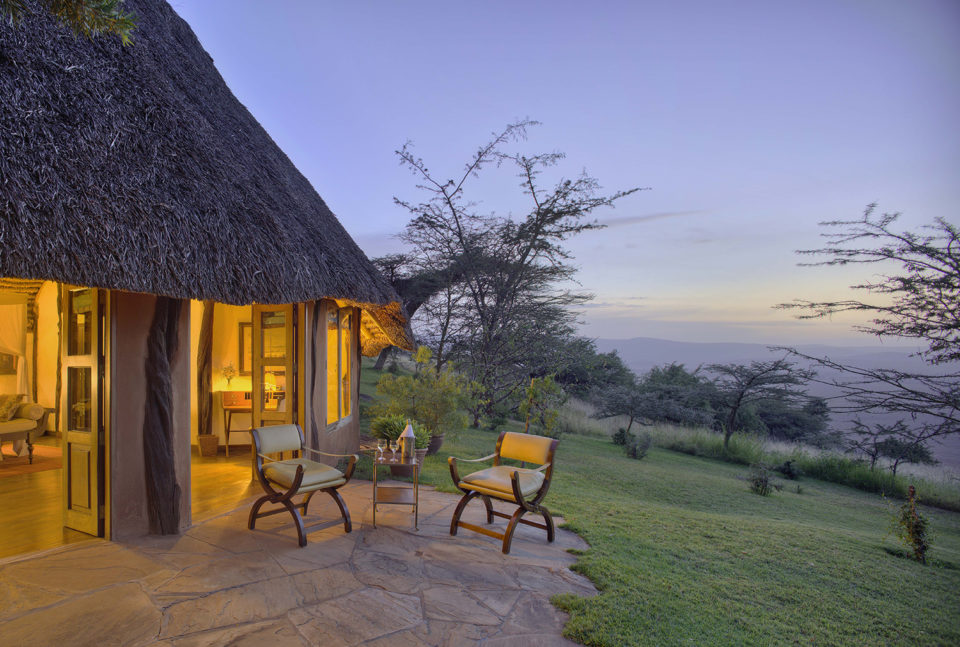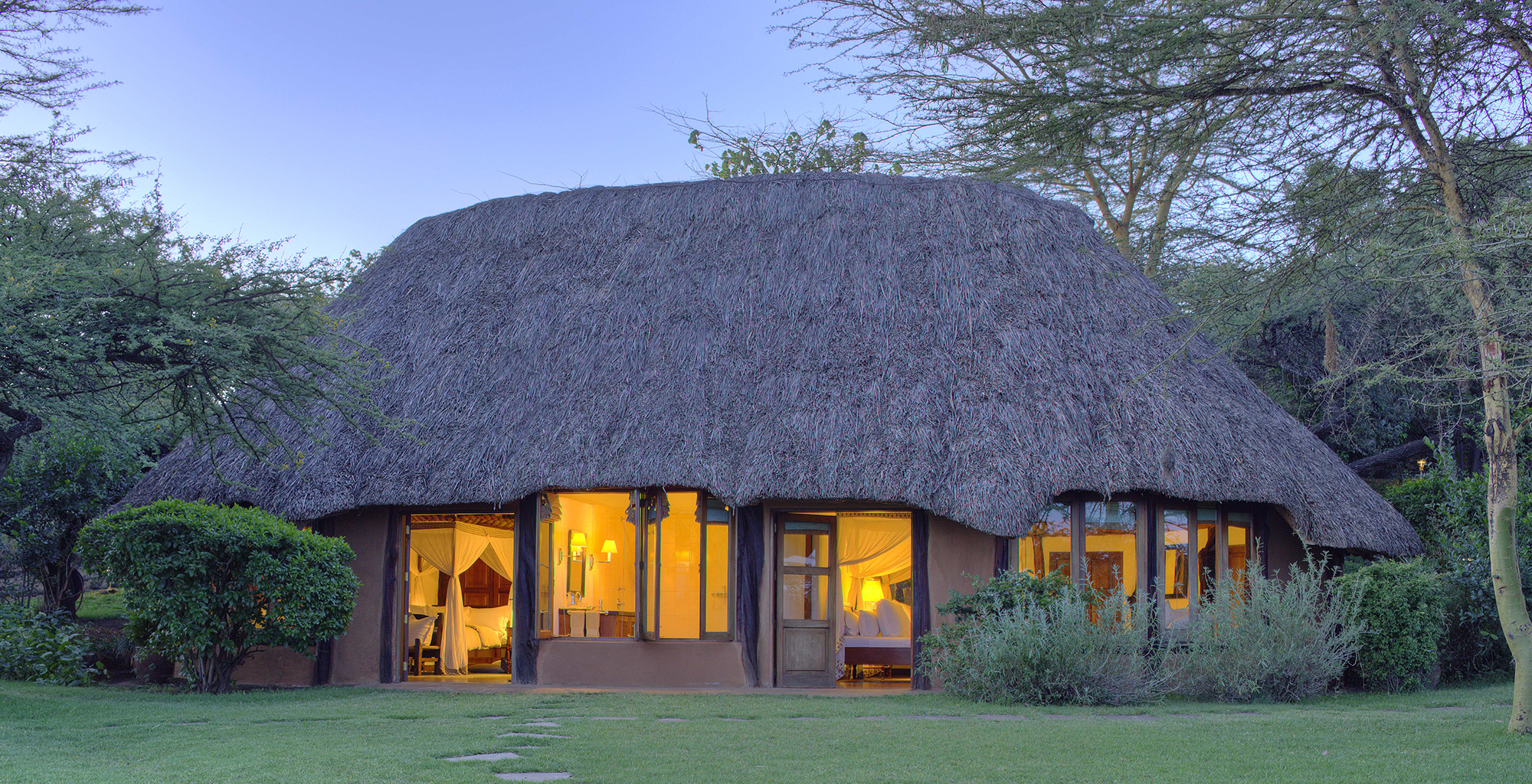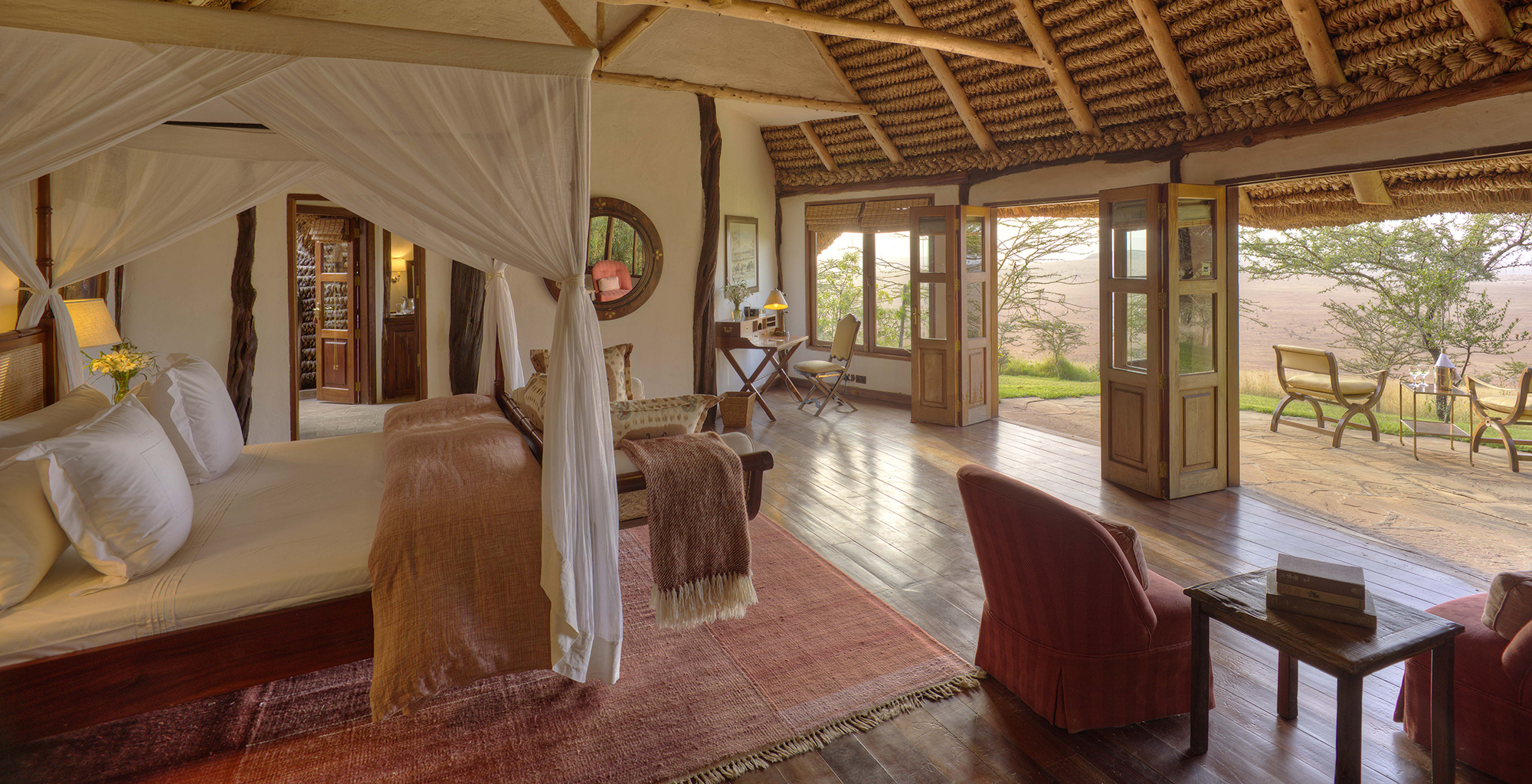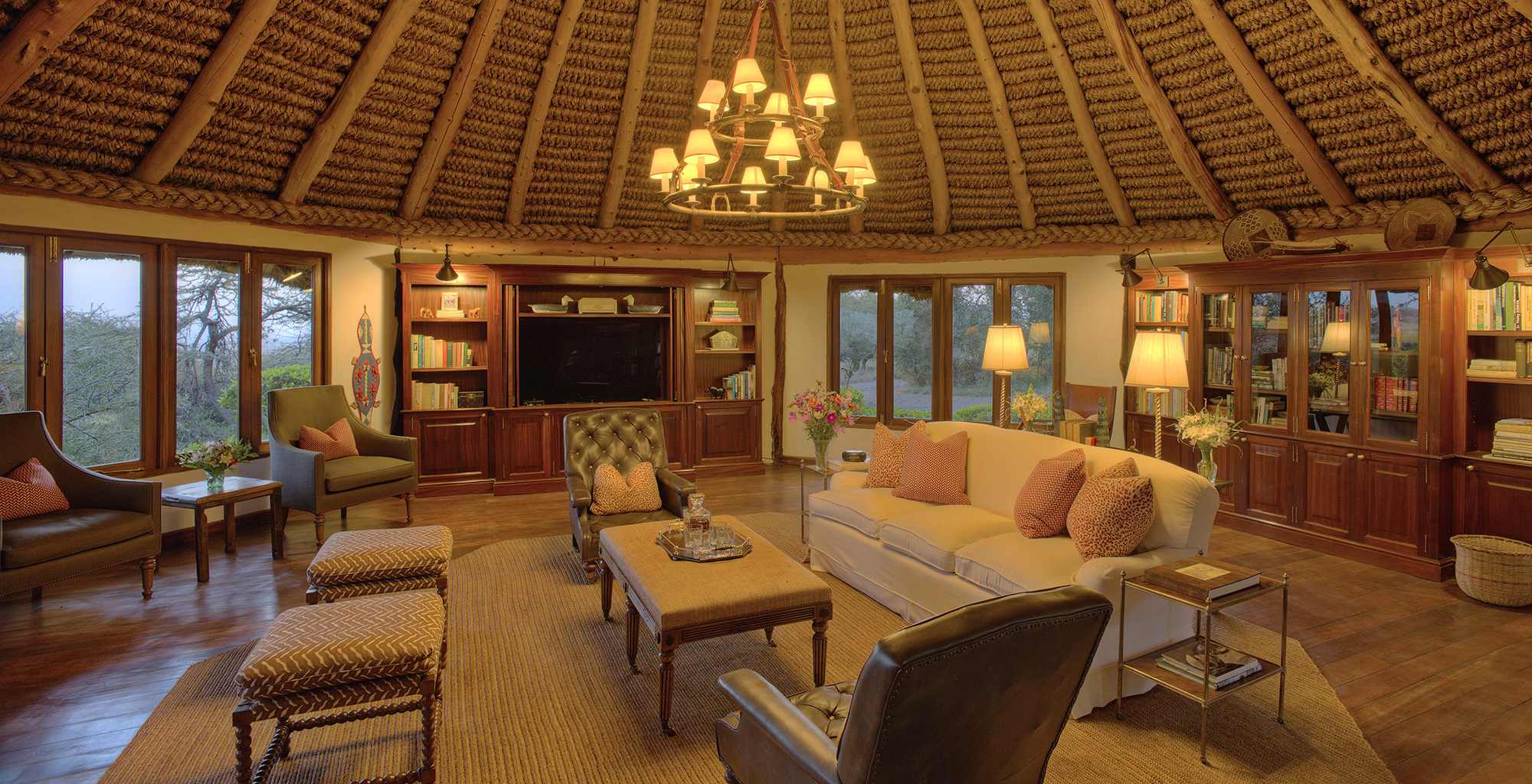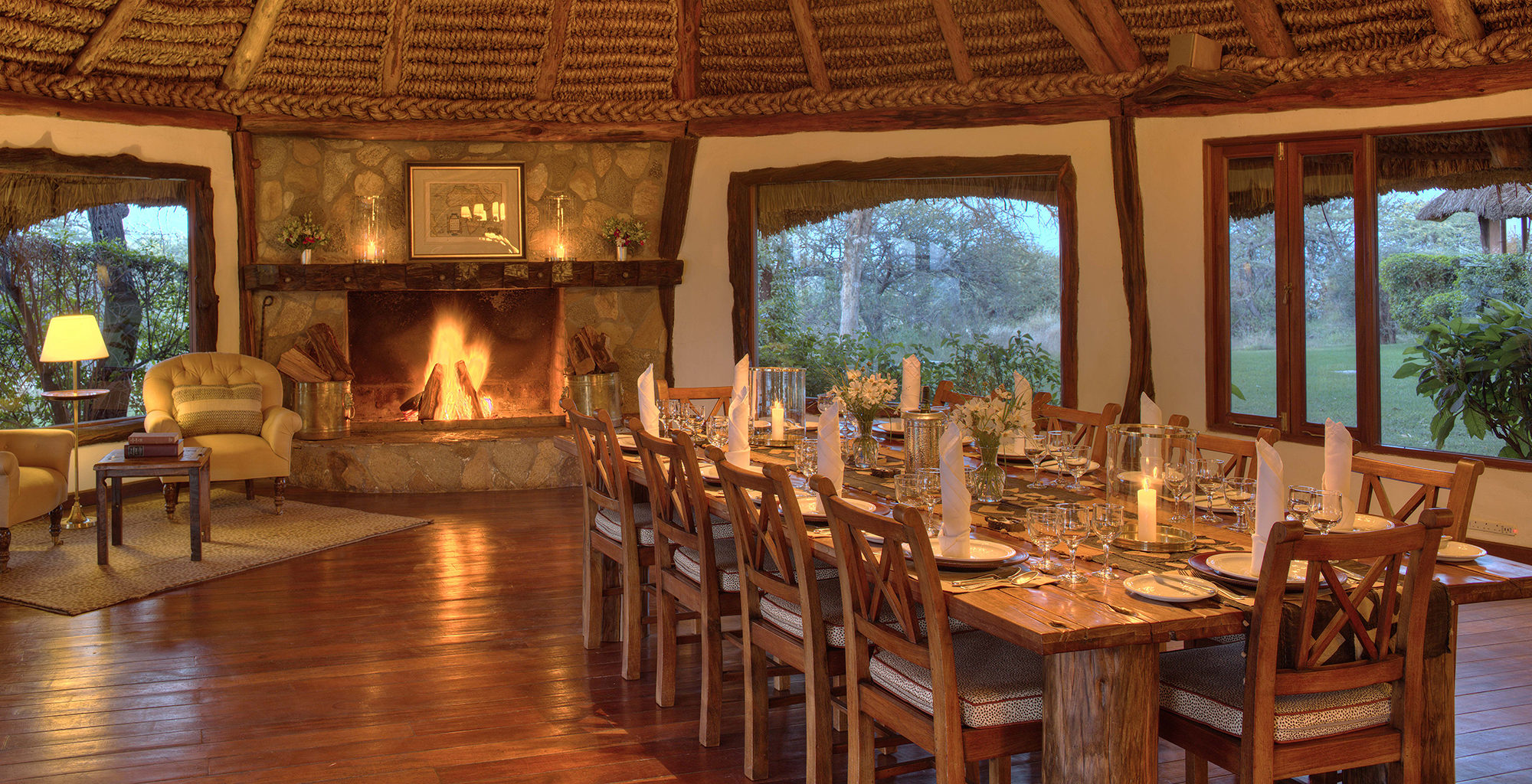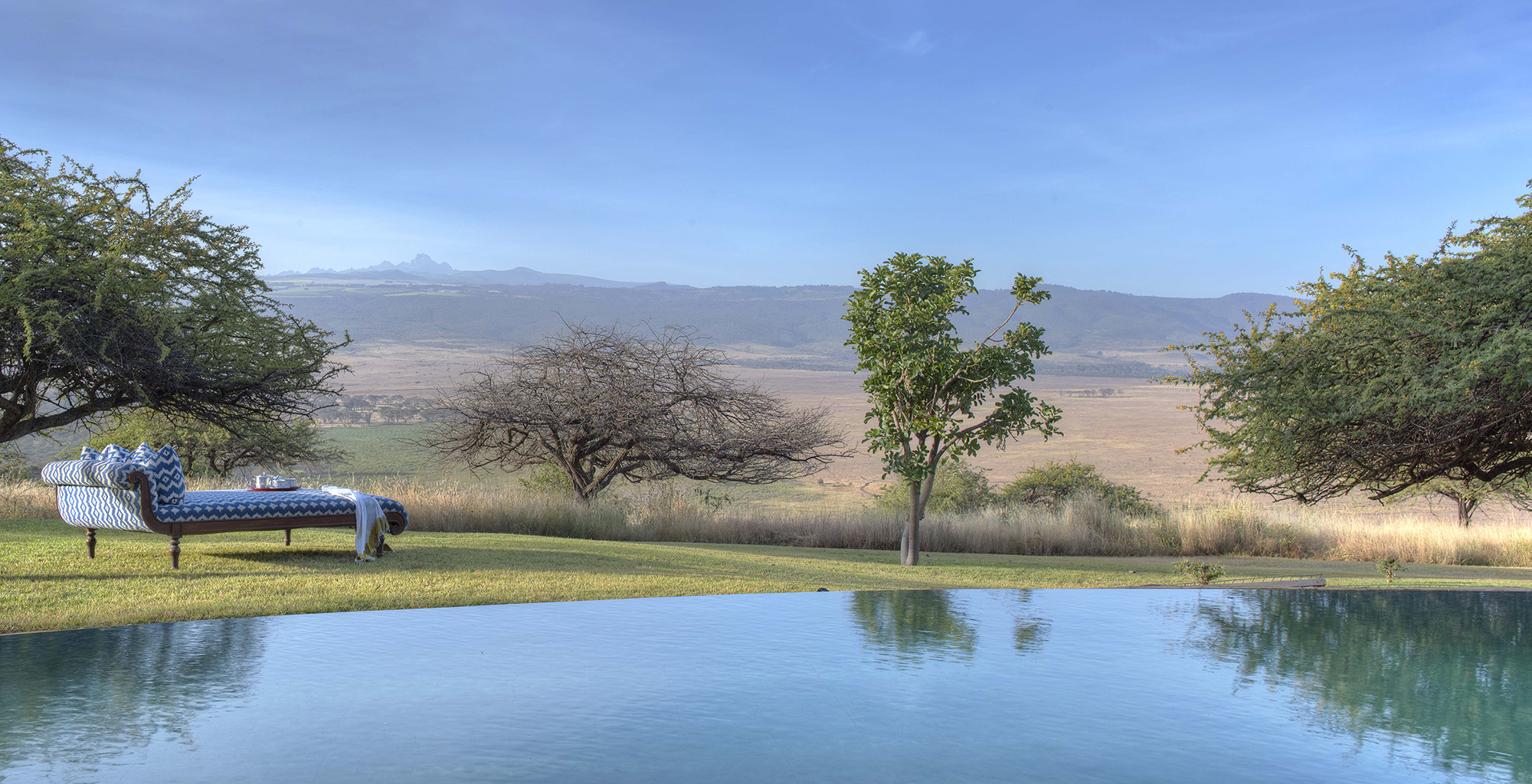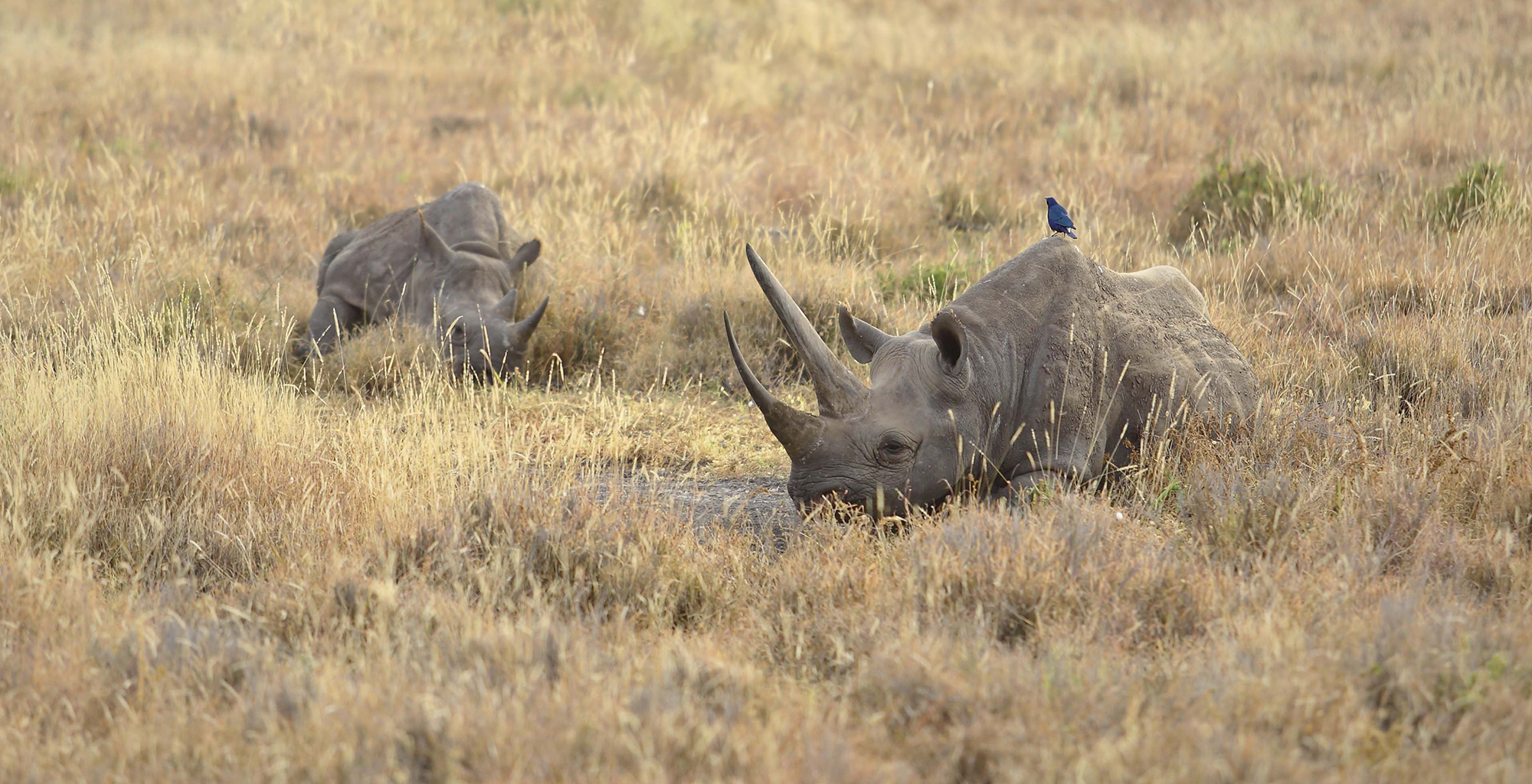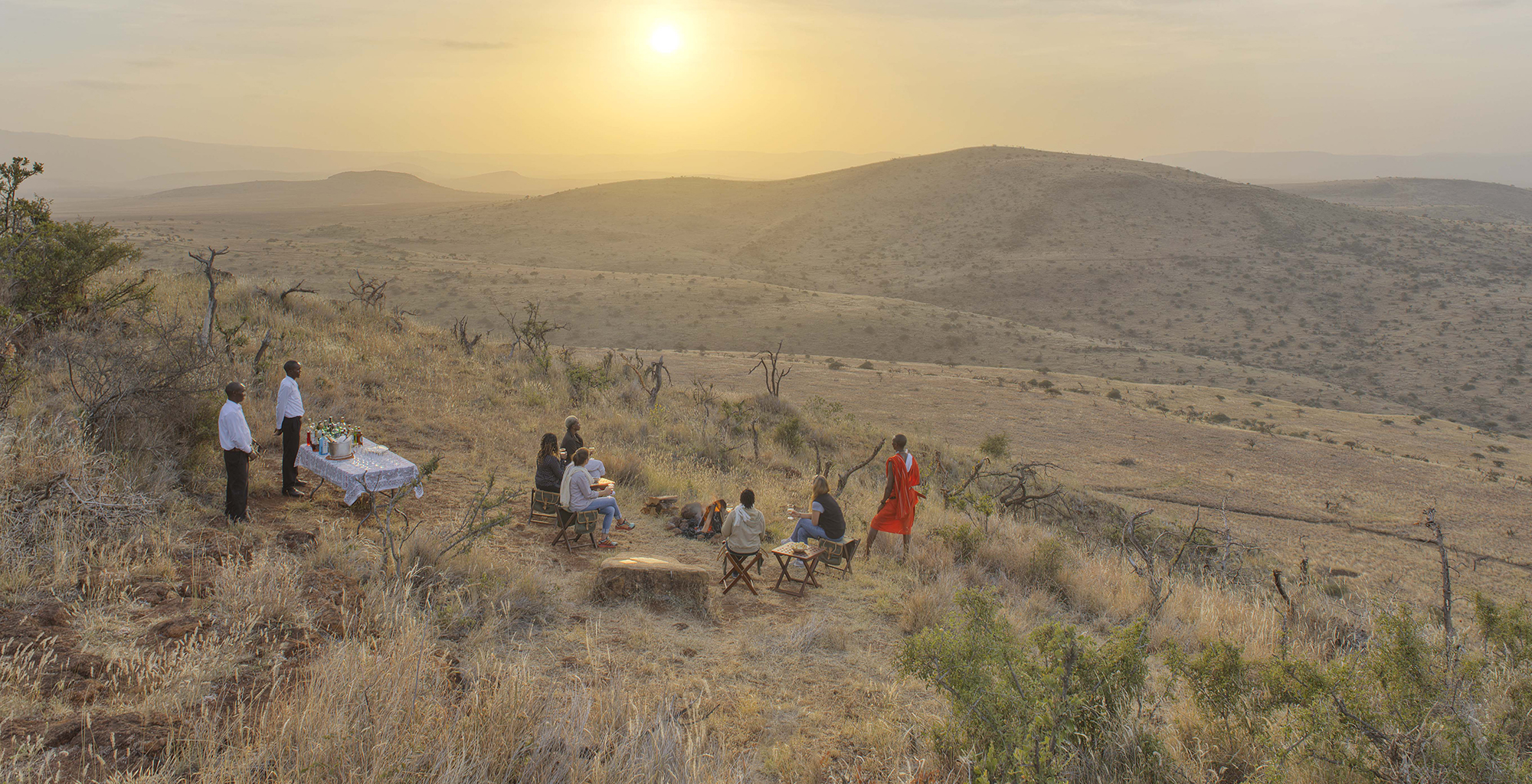Kifaru House is situated in the northern foothills of Mount Kenya, on a privately owned 65,000 acre piece of wild land called the Lewa Wildlife Conservancy. A major player in Laikipia, the Conservancy is well known for the success it has had in reversing the decline (an international and national trend) of wildlife populations.
Overview
Bankrolled by one of Lewa’s donors, Kifaru House is a no-expenses-spared, eco-conscious luxury lodge. The main building, built from sustainable and salvaged materials, is a wonderful meeting place, where guests can relax around a fire, read and exchange news. Other shared areas include a dining room dominated by a table fashioned from the decking of an old dhow, a swimming pool with plains and mountain views, and a library with internet access.
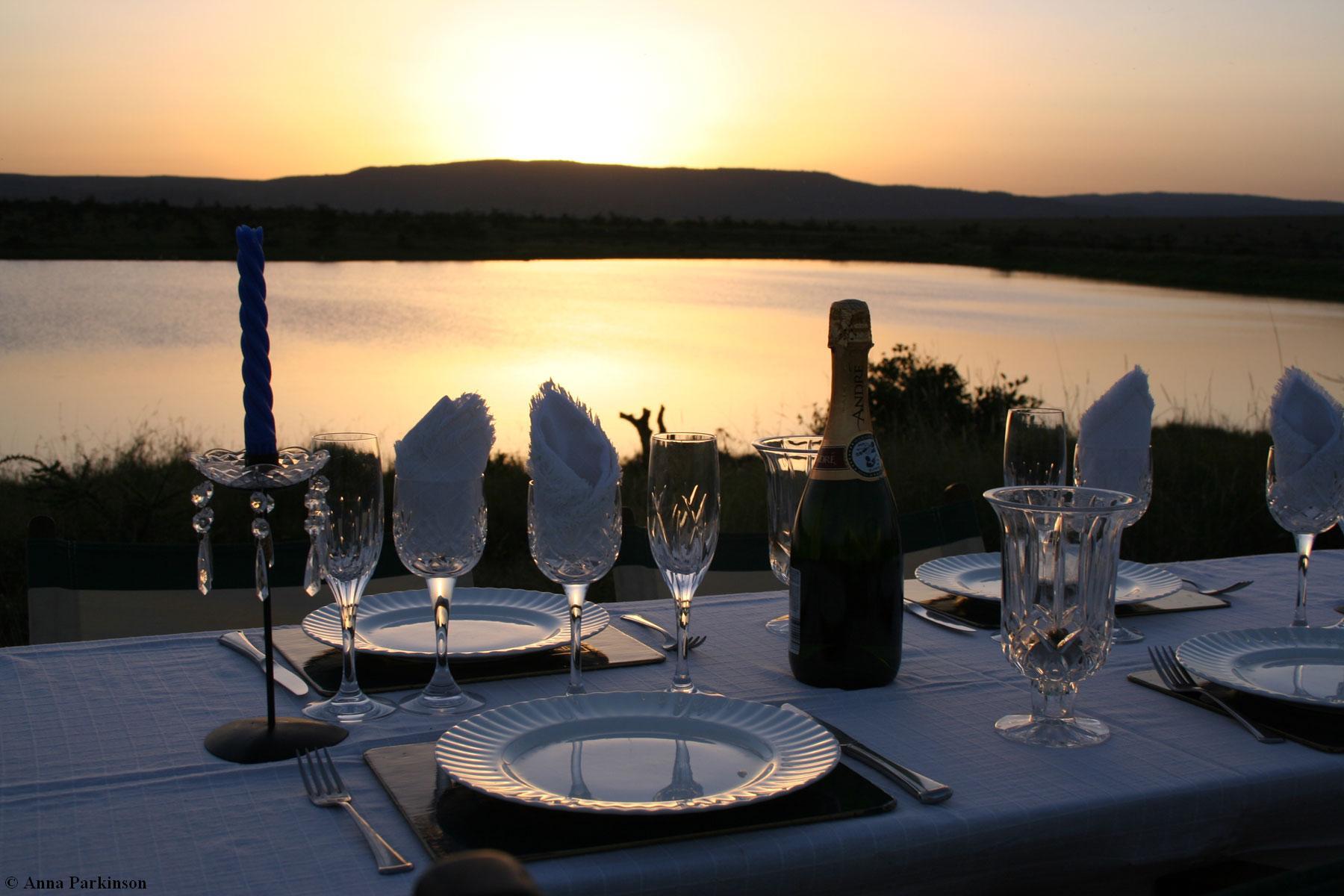
Food & service
The food is a delight – as is the selection of wines – while the service is discreet and efficient.
Rooms
Using a colonial cottage template, Kifaru’s accommodation is designed to leave its guests with a sense of space and privacy. Each of the 6 cottages comes with double rooms, large canopied double beds, colonial-styled furnishings, private verandas and en-suite bathrooms.
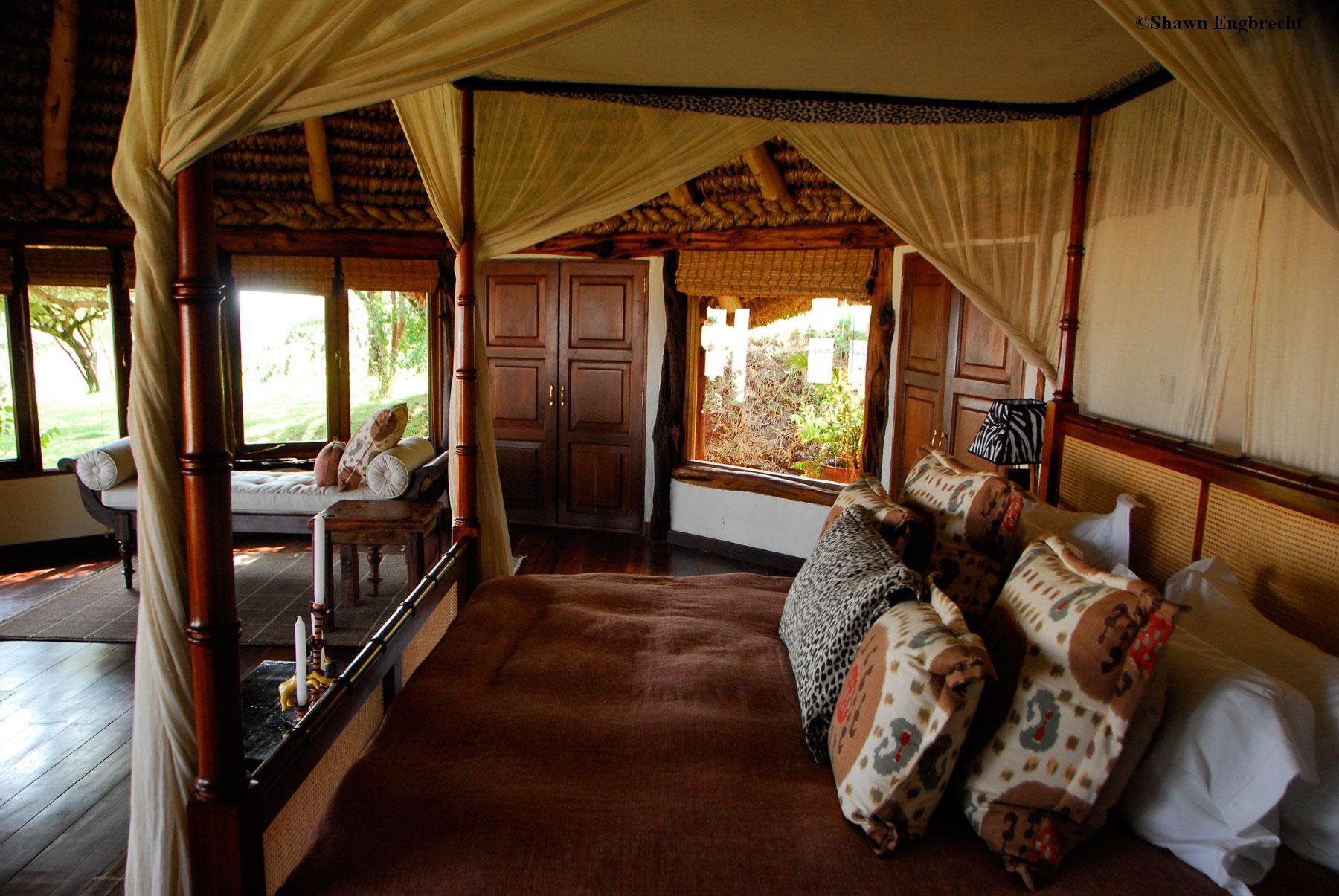
As with the main building, a great deal of thought has gone into how the cottages create something of a retreat, while at the same time open guests to wild Kenya: the windows therefore are large, and afford stunning views of wild Kenya, but are positioned in such a way as to minimise direct sunlight.
Activities
Activities include wildlife drives, guided walks, horse riding, camel treks, cultural visits with local communities and Conservancy educational talks. Extras include heli-fishing and a visit to N’gwesii village. Massage, manicure and pedicure services are available, but require prior notice.
Please note that Kifaru House is closed in April and November.
Impact
Conservation
Kifaru House is entirely owned by Lewa Wildlife Conservancy, a registered not for profit organisation with the following mission statement:
“The LWC works as a catalyst for wildlife conservation. It does this through the protection and management of species and their habitats, the support of community conservation initiatives and the education of neighbouring communities in the value of wildlife”
Revenue generated from Kifaru House are channelled into Lewa’s annual operating budget to meet costs associated with activities such as wildlife conservation and community development.
Kifaru House – through careful region management and wise use of tourism profits – has reversed the decline of endangered species around the area, including the famous black rhino and Grevy’s zebra. Elewana Collection also invest heavily in guide training, and have started a two year Guide Apprenticeship Program; this year’s cohort of 16 have already been selected.
Commerce
Solar panels are used to generate electricity and hot water at Kifaru House, and waste-water is employed to irrigate the surrounding gardens.
Community
The Women’s Micro Credit Programme allows local women to access funds as small as US $65 which help them start their own businesses and lift their families out of poverty.
